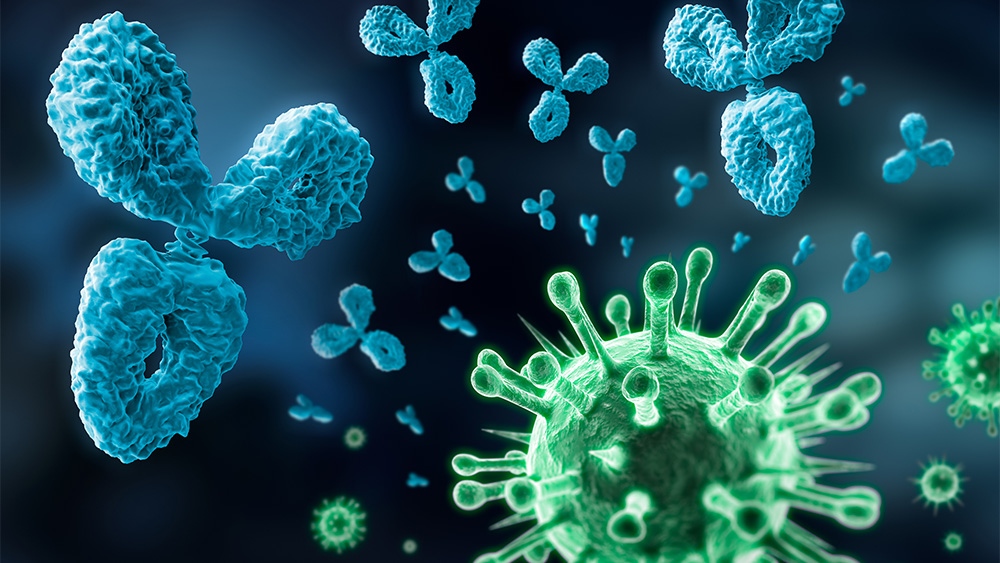
The NIH COVID-19 Treatment Guidelines provides the most up-to-date information on COVID-19 treatments, such as the use of monoclonal antibodies, to help health care providers decide on treatments for their patients.

The NIH COVID-19 Treatment Guidelines provides the most up-to-date information on COVID-19 treatments, such as the use of monoclonal antibodies, to help health care providers decide on treatments for their patients.
What you need to know
When COVID-19 first appeared, no one knew how to treat it. But the science of COVID-19 has been moving fast—so fast that many doctors find it hard to stay up to date.
To help doctors keep up with the latest information, NIH created the NIH COVID-19 Treatment Guidelines Panel in March 2020. This group of experts and community members reviews new evidence on possible COVID-19 treatments. The treatment recommendations are available online in the NIH COVID-19 Treatment Guidelines, a living document that is updated often.
How do the guidelines updates work?
Based on new scientific evidence and expert opinion, the panel decides whether to recommend a treatment. Sometimes the panel says that there is not enough data for a recommendation. But if the panel approves an update, the revised guidelines are posted online.
What is an example of an update?
The What’s New in the Guidelines section makes it easy to find the most recent information. For example, the guidelines dated February 11, 2021, said that there was not enough data to recommend either for or against the use of a monoclonal antibody called tocilizumab as a COVID-19 treatment.
Based on new data, the panel updated the guidelines on March 5, 2021, to clarify which groups of patients might benefit from tocilizumab and to say that it needs to be given with certain other treatments.
Why is this work important?
Research on COVID-19 treatments has advanced rapidly. The expert panel makes sure that health care providers have reliable, up-to-date information to guide discussions with patients.
Where can I go to learn more?
- Learn more about how NIH is leading and supporting research to fight and prevent COVID-19.
NIH Accelerating COVID-19 Therapeutic Interventions and Vaccines (ACTIV)
- ACTIV is a public-private partnership that is helping to speed up development of the most promising treatments and vaccines for fighting COVID-19. The ACTIV-3 trial is looking at several monoclonal antibodies.
Why Joining a Clinical Trial Matters
- Scientists and health care providers need your help to develop safe and effective vaccines and medicines to prevent and treat COVID-19. Talk with your doctor if you are interested in participating in a study.
Sources
COVID-19 Treatment Guidelines Panel. (n.d.). Coronavirus disease 2019 (COVID-19) treatment guidelines. Retrieved February 9, 2021, from https://www.covid19treatmentguidelines.nih.gov/
Lloyd, E. C., Gandhi, T. N., & Petty, L. A. (2021). Monoclonal antibodies for COVID-19. JAMA, 325(10), 1015.
National Institute of Allergy and Infectious Diseases. (2020, April 21). Expert U.S. panel develops NIH treatment guidelines for COVID-19. Retrieved February 10, 2021, from https://www.nih.gov/news-events/news-releases/expert-us-panel-develops-nih-treatment-guidelines-covid-19
TrialSite. (2021, January 28). NIH COVID-19 treatment guidelines panel invites top ivermectin researchers to discuss the evidence of efficacy to date. Retrieved February 10, 2021, from https://trialsitenews.com/nih-covid-19-treatment-guidelines-panel-invites-top-ivermectin-researchers-to-discuss-the-evidence-of-efficacy-to-date/
U.S. Department of Health and Human Services. (n.d.). Monoclonal antibodies for high-risk COVID-19 positive patients. CombatCOVID.hhs.gov. Retrieved February 10, 2021, from https://combatcovid.hhs.gov/i-have-covid-19-now/monoclonal-antibodies-high-risk-covid-19-positive-patients

News and Stories
Read stories about the efforts underway to prevent, detect, and treat COVID-19 and its effects on our health.
 An official website of the United States government
An official website of the United States government

